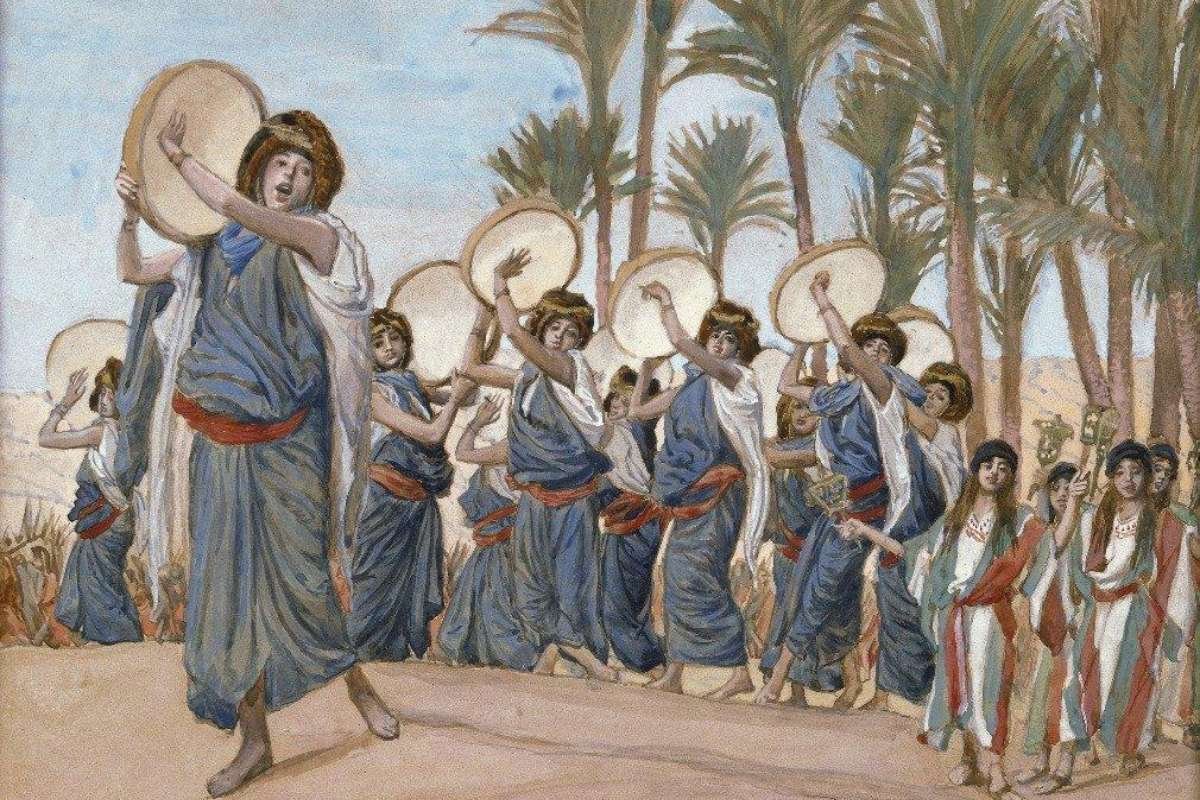- Source: AI Generated Image
It’s easy to think of biblical leaders as mostly men, but when you really dig into the stories, you discover some truly remarkable women. These women leaders in the Bible weren’t just background figures; they were forces of nature. They showed incredible courage, wisdom, and a deep connection to the divine, guiding communities and even changing the course of history. In a time when women often had limited roles, these women stepped up in powerful ways.
They led armies, spoke truth to power, and had such strong faith that their actions continue to inspire us today. Their experiences offer such valuable insights into leadership, not just for women, but for everyone. They remind us that strength, vision, and influence come in many forms, and their stories are just as vital and relevant now as they were centuries ago.
In this article, we will explore some pages of the bible that showcase the tales of a few women leaders who rise to guide the communities and spread the words of the divine.
1. Deborah: The Judge and Prophetess

She summoned Barak, a military commander, and delivered God’s message: to go into battle against the Canaanite army. When Barak hesitated and asked Deborah to accompany him, she agreed, but told him that the honor of victory would go to a woman. True to her word, it was Jael, another woman, who ultimately killed the enemy general, Sisera.
Deborah’s leadership wasn’t just about military strategy; it was deeply rooted in her spiritual discernment. She composed a victory song that celebrated both divine intervention and human courage. Her story highlights the power of collaboration between women and men when guided by faith.
2. Esther: The Queen Who Saved a Nation
The Book of Esther offers another compelling portrait of women leaders in the Bible. Esther, a Jewish orphan raised by her cousin Mordecai, rose to become the queen of Persia. Despite her royal status, Esther faced a grave challenge when Haman, a high-ranking official, plotted to annihilate the Jewish people.
Esther’s strength lay in her wisdom and courage. Knowing the risks of approaching the king uninvited, she fasted and prayed, then bravely revealed her Jewish identity and exposed Haman’s plot. Her actions not only saved her people but also changed the course of history for generations.
Esther teaches us that leadership sometimes comes from positions of influence, not just authority. She used her voice, faith, and strategy to advocate for justice, making her a timeless symbol of bravery and purpose.
3. Miriam: The Prophetess and Worship Leader

Later, after the miraculous crossing of the Red Sea, Miriam led the women of Israel in a celebratory song and dance, praising God for deliverance. This moment marked her as not just a prophetess but also a leader in worship and expression of faith.
While Miriam faced consequences later for challenging Moses’ authority, her early leadership contributed to Israel’s collective strength. Her story reminds us that leadership includes celebration, guidance, and spiritual expression.
4. Huldah: The Prophet Who Confirmed God’s Word
Lesser known but equally impactful is Huldah, a prophet during King Josiah’s reign. Her story appears briefly in 2 Kings 22 and 2 Chronicles 34. When the Book of the Law was discovered during temple renovations, Josiah’s advisors sought Huldah’s counsel.
She confirmed the book’s authenticity and delivered a powerful prophecy regarding Judah’s fate. Her authority was unquestioned, even in a patriarchal society. That she was chosen to validate sacred scripture underscores the respect she commanded as a spiritual leader.
Huldah’s story, though short, reflects the depth of female influence in religious reform and truth-telling. She exemplifies how women leaders in the Bible guided not just individuals but entire nations through their spiritual insight.
5. Priscilla: The Theological Teacher

In Acts 18, she and Aquila encounter Apollos, a gifted speaker who lacked a full understanding of Christian doctrine. Together, they correct and teach him more accurately about the way of God. What’s notable is that Priscilla is often mentioned before her husband, suggesting her prominence in their ministry.
Priscilla’s leadership in theological instruction and church life highlights the evolving role of women leaders in the Bible, especially in the early Christian community. She was both a mentor and an evangelist—roles that continue to inspire Christian women today.
Leadership Rooted in Faith
The stories of women leaders in the Bible aren’t simply about power—they are about purpose. These women didn’t seek leadership for personal gain. Rather, they acted out of deep conviction, faith, and a commitment to their communities. Whether through prophecy, strategy, worship, or wisdom, they influenced the direction of their people and left legacies of courage.
Their examples challenge modern readers to rethink traditional views on gender and leadership in religious contexts. They remind us that spiritual authority is not limited by societal norms but empowered by divine calling.
Conclusion:
It’s truly inspiring to see how the stories of women leaders in the Bible still resonate so deeply with women today. Whether they’re leading a congregation, fighting for justice, diving deep into theological studies, or simply navigating the challenges of daily life, these biblical figures offer a powerful blueprint.
From Deborah, who fearlessly judged Israel, to Esther, who bravely spoke up for her people, from Miriam, leading worship with song, to Priscilla, who skillfully taught the scriptures, these women were pioneers. They showed us, then and now, that leadership isn’t about gender; it’s about having faith, acting with courage, and stepping forward when it counts the most.
